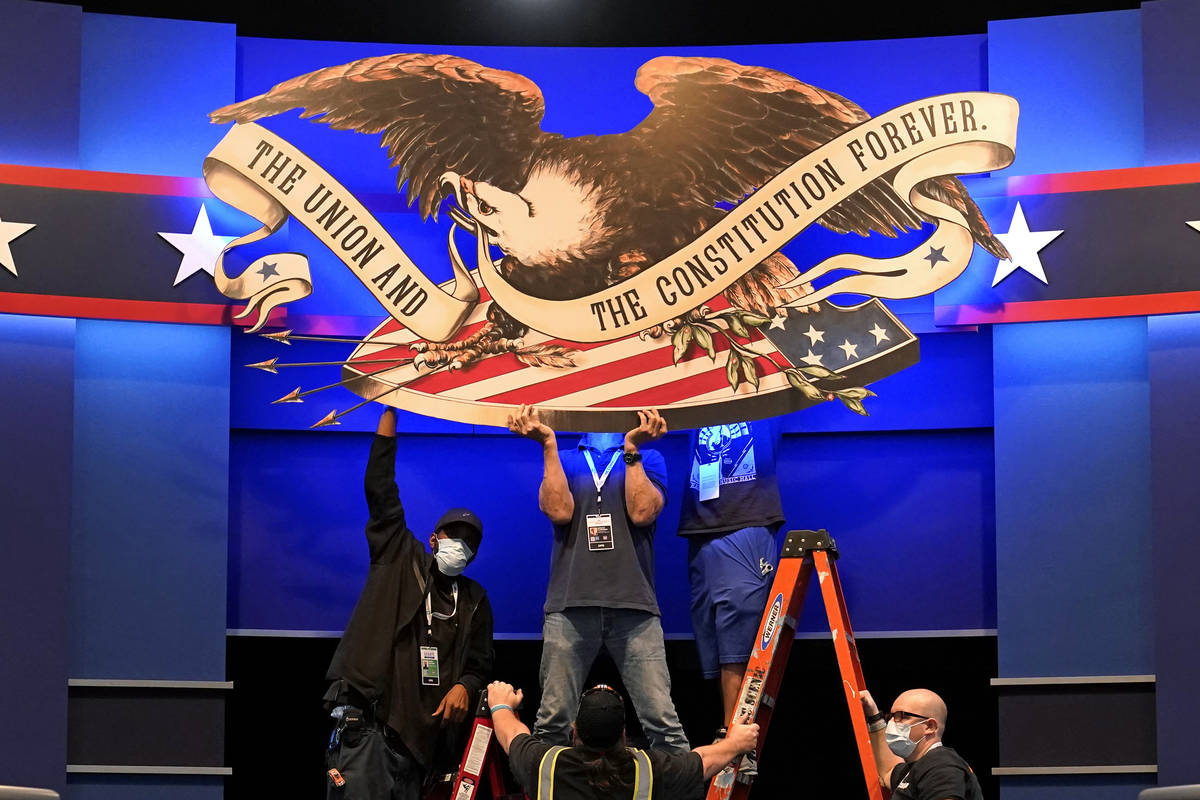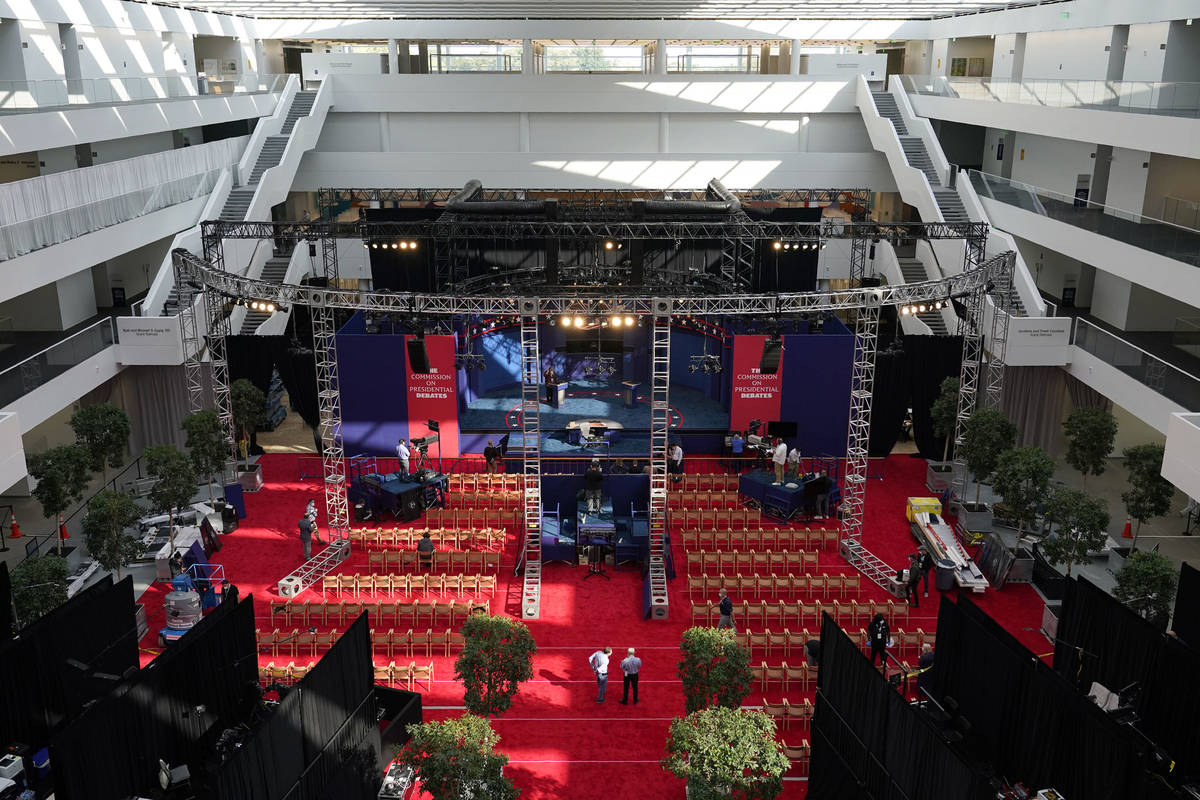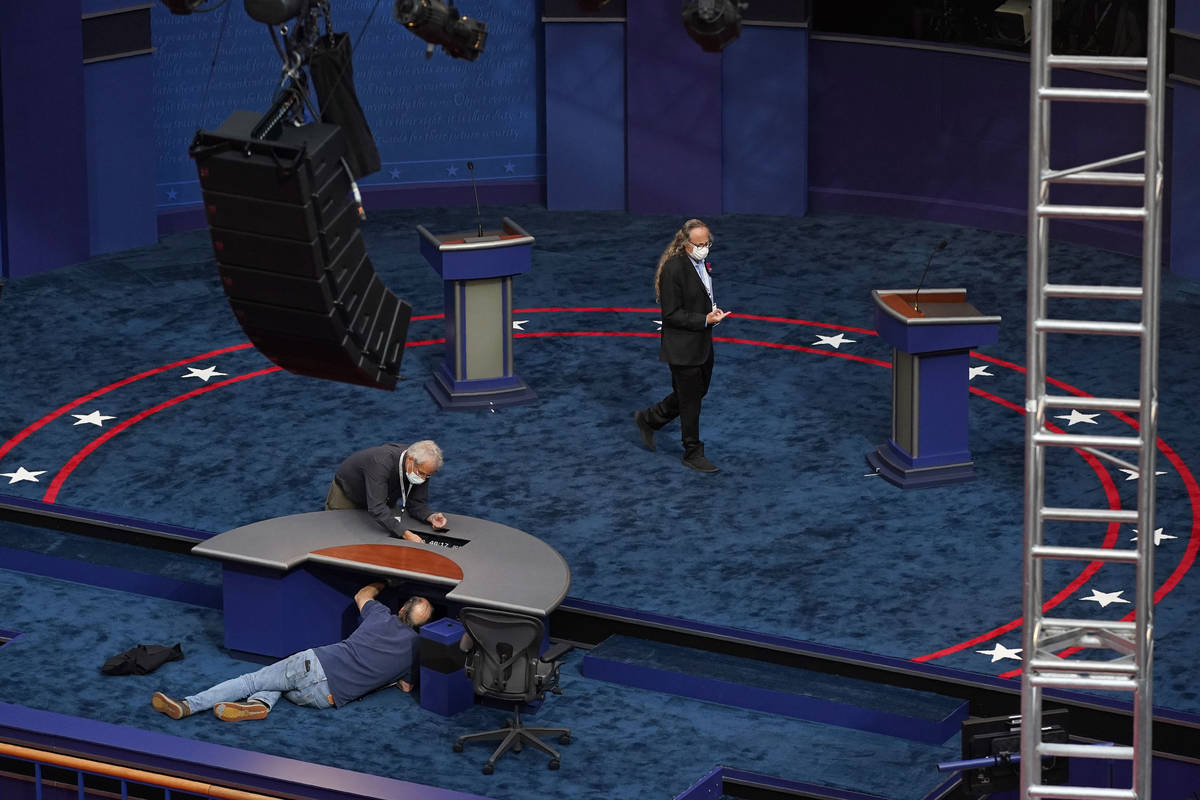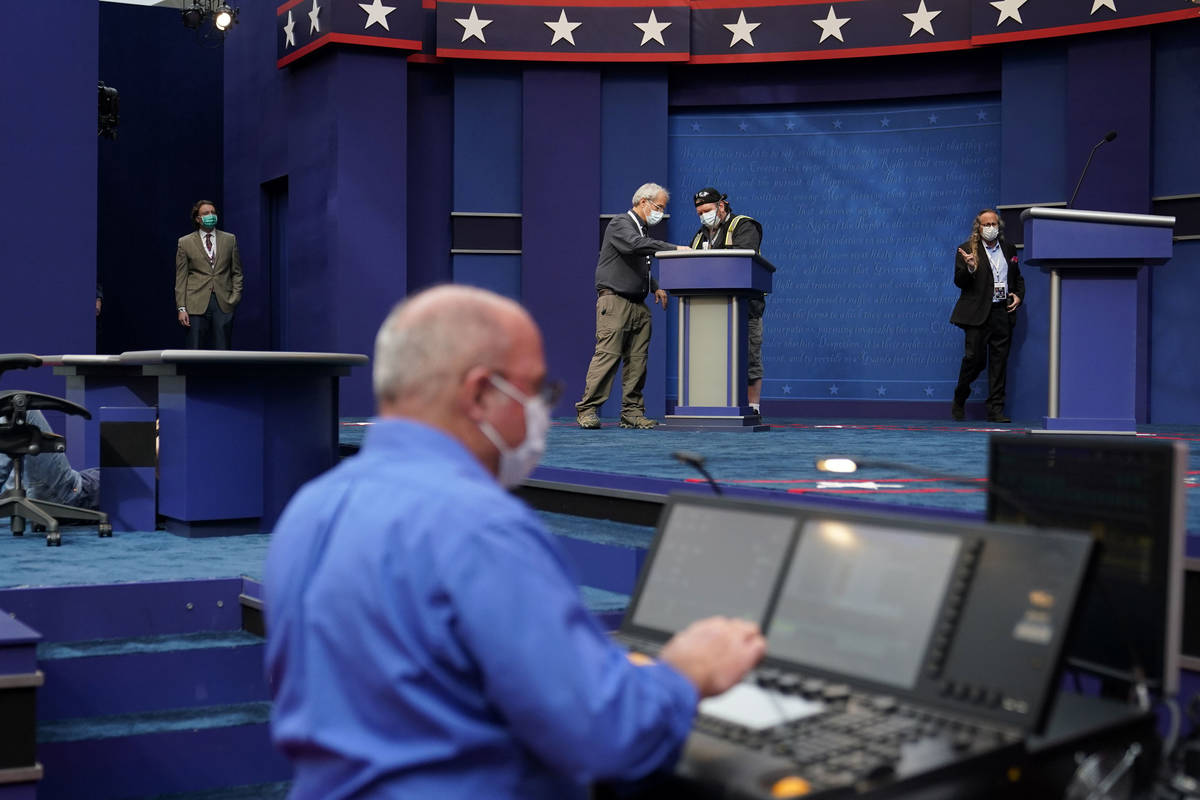Presidential debates defied coronavirus cancellations
WASHINGTON — Although doubts were raised about whether presidential debates would actually happen this year because of the coronavirus, the first of three scheduled contests between President Donald Trump and former Vice President Joe Biden is scheduled to kick off at 6 p.m. Tuesday.
“We had to scamper,” said Frank J. Fahrenkopf Jr., the co-chairman of the Commission on Presidential Debates. Two venues canceled because of COVID-19 complications and the panel had to find suitable alternatives in a matter of days.
Tuesday’s debate — which will be staged at Case Western Reserve University in Cleveland — was originally to be held at Notre Dame University, which canceled. Notre Dame President the Rev. John I. Jenkins said the institution arrived at “this difficult decision because the necessary health precautions would have greatly diminished the educational value of hosting the debate on our campus.”
Earlier, the University of Michigan bowed out of hosting the second presidential debate. The new location will be the Adrienne Arsht Center for the Performing Arts of Miami-Dade County in Miami, Florida, on Oct. 15.
Boycott rejected
Some on the left urged Biden to boycott the events.
In July, New York Times columnist Thomas Friedman wrote that Biden should agree to show up only if Trump released his 2016-2018 tax returns and the Commission on Presidential Debates hired a “real-time fact-checking team.”
In August, House Speaker Nancy Pelosi urged Biden to boycott all three debates lest her fellow Democrat “legitimize any conversation” with the brash Trump, who frequently berates Biden’s mental acumen.
As if to make Pelosi’s point, Trump challenged Biden to take a drug test to prove that he didn’t take performance-enhancing drugs ahead of the debate.
For his part, Biden called Trump a “liar” who is “not too smart” and likely to fall on personal attacks.
Biden and Trump, however, decided to go forward with the televised confrontation which has become a staple of presidential campaigns.
Wallace to moderate
Last week, Chris Wallace, the “Fox News Sunday” anchor who will serve as moderator for the first face-off, announced his plan to break the debate down to six 15 minute segments on each of the following topics – the candidates’ records, the Supreme Court, COVID-19, the economy, race and violence in cities and the integrity of the election – although not necessarily in that order.
Wallace believes it is a moderator’s job to be “as invisible as possible.” Before the 2016 presidential debate he moderated, Wallace said, “I do not believe it is my job to be a truth squad. It’s up to the other person to catch them on that.”
Social distancing rules will change the feel of the debate. Members of a much pared-down audience — expected to be fewer than 100 people — will have to wear masks and test negative for the coronavirus, according to Fahrenkopf.
No one will wear masks on stage, and the candidates will not shake hands.
Both campaigns will fill a quarter of the seats each while the commission and event hosts Case Western and the Cleveland Clinic will hand out tickets for the other half.
To qualify for the debates, candidates must be on the ballot on enough states to “have at least a mathematical chance” of winning the Electoral College, and have the support of 15 percent in five national polls. The criteria have limited debate participation to the two major parties since 1992, when businessman Ross Perot shared the stage with Republican President George H.W. Bush and Democratic challenger Bill Clinton.
The third and final presidential debate will fall on Oct. 22 at Belmont University in Nashville, Tennessee.
The vice presidential debate between Vice President Mike Pence and Sen. Kamala Harris, D-Calif., will take place on Oct. 7 at the University of Utah.
“I think this debate could change minds,” said Ken Khachigian, former chief speechwriter to President Ronald Reagan.
Contact Debra J. Saunders at dsaunders@reviewjournal.com or 202-662-. Follow @DebraJSaunders on Twitter.


























